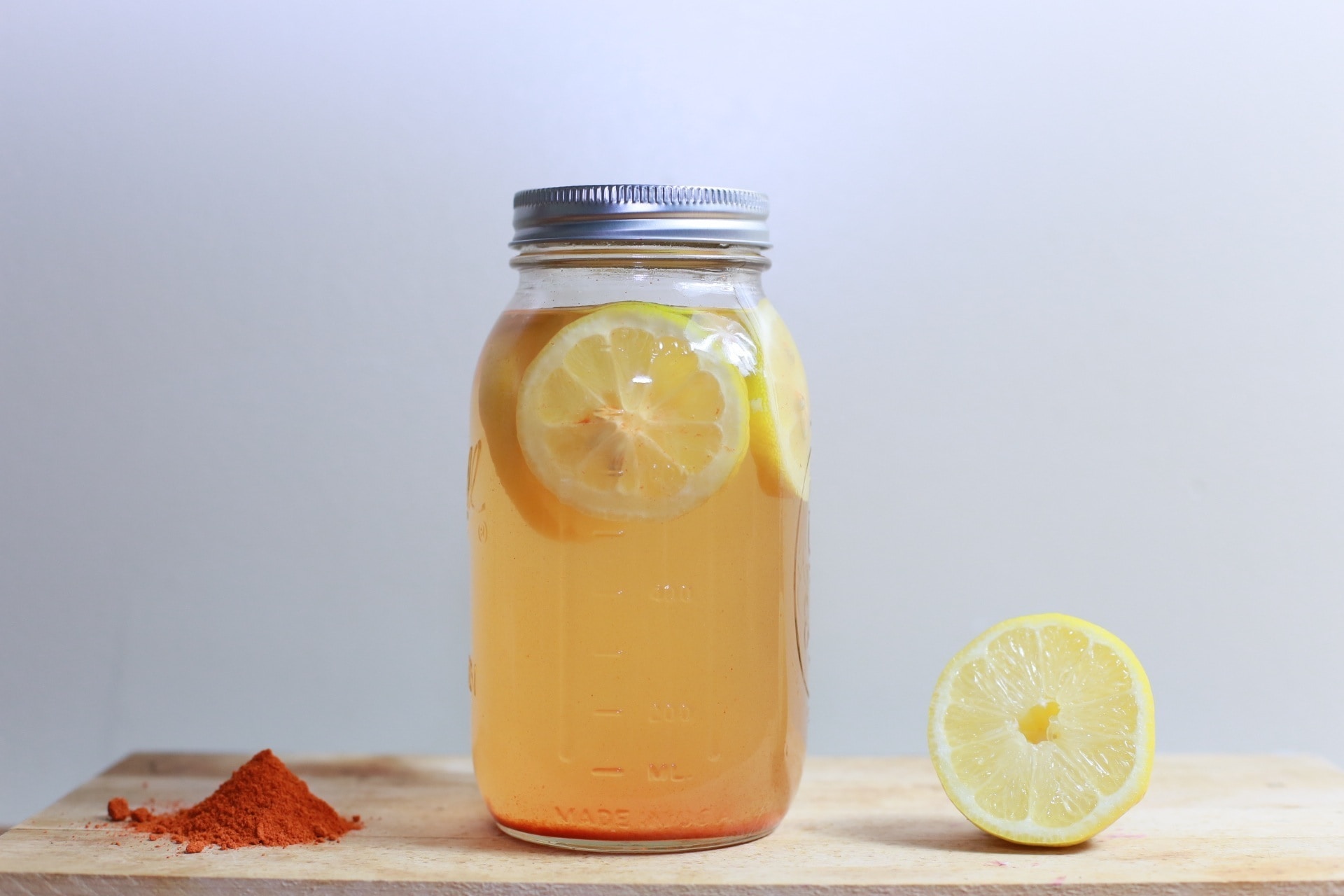Did you know that there is a type of cheese that is high in butyrate? Butyric acid, also known as butyrate, is a fatty acid that plays a significant role in supporting digestive health and overall well-being. It serves as a primary energy source for the cells lining the colon and has anti-inflammatory properties that can help with various digestive disorders. Recently, butyric acid has gained attention as a dietary supplement. So, if you’re curious about which cheese is high in butyrate, keep reading to find out more!
What is Butyrate?
Butyrate, also known as butyric acid, is a short-chain fatty acid that holds significant biological importance. It is naturally produced in the human body through the fermentation of dietary fibers by gut bacteria. Butyrate plays a vital role in supporting digestive health and overall well-being.
Definition of Butyrate
Butyrate refers to a type of fatty acid that is produced when the gut bacteria ferment dietary fiber. It is present in various forms and primarily serves as a source of energy for the cells lining the colon.
Biological Significance of Butyrate
Butyrate holds great biological significance due to its various roles in the body. It serves as a vital energy source for the cells in the colon, promotes the health and integrity of the gut lining, and possesses anti-inflammatory properties.
Role of Butyrate in Digestive Health
Energy Source for Colon Cells
In the gastrointestinal tract, butyrate serves as the primary source of energy for the cells lining the colon. These cells rely on butyrate to fuel their metabolic processes, ensuring their proper functioning and overall intestinal health.
Promoting Gut Lining Health and Integrity
Butyrate is believed to be involved in promoting the health and integrity of the gut lining. It helps maintain the structural integrity of the intestinal barrier, preventing harmful substances from entering the bloodstream and protecting against digestive issues and infections.
Anti-inflammatory Properties
Butyrate has been found to possess anti-inflammatory properties, which can help in modulating the immune response in the gut. By reducing inflammation, butyrate may alleviate symptoms associated with various digestive disorders and contribute to overall digestive health.

Butyrate and Digestive Disorders
Irritable Bowel Syndrome (IBS)
Butyrate has been studied for its potential benefits in managing symptoms of irritable bowel syndrome (IBS). IBS is a common digestive disorder characterized by abdominal pain, bloating, and changes in bowel movements. While research is still ongoing, some studies suggest that butyrate supplementation may help improve symptoms and promote better gut health in people with IBS.
Inflammatory Bowel Disease (IBD)
Inflammatory bowel disease (IBD), which includes conditions like Crohn’s disease and ulcerative colitis, involves chronic inflammation in the digestive tract. Butyrate has shown promise in reducing inflammation in the gut, potentially providing relief for those with IBD. However, more research is needed to fully understand its effectiveness and optimal usage for these conditions.
Butyrate as a Dietary Supplement
Supplementing with Butyrate
In recent years, butyrate has gained attention as a dietary supplement. It is available in various forms including capsules, powders, and liquid preparations. However, it’s important to note that the use of butyrate supplements should be done under the guidance of a healthcare professional, as individual needs and potential interactions with medications should be taken into consideration.
Potential Benefits
Proponents of butyrate supplementation suggest that it may provide additional support for gut health, immune function, and even mental well-being. While further research is needed to fully understand the extent of these benefits, butyrate supplementation shows promise in promoting overall digestive health and potentially alleviating symptoms of certain digestive disorders.
Forms of Butyrate Supplements
Butyrate supplements are available in different forms, allowing individuals to choose the one that best suits their needs. These supplements may come in the form of capsules, powders, or liquid preparations. Each form has its own advantages, and it’s important to consult with a healthcare professional to determine the most suitable option.
Consultation with Healthcare Professional
Before incorporating butyrate supplements into your daily routine, it is crucial to consult with a healthcare professional. They can provide personalized guidance based on your specific health needs and ensure that there are no potential interactions with medications or pre-existing health conditions.

Introduction to Cheese and Butyrate
Cheese as a Food
Cheese is a beloved food that is enjoyed worldwide. It is made by coagulating milk protein, typically from cows, goats, or sheep. Cheese comes in various flavors, textures, and types, making it a versatile and delicious addition to many meals and recipes.
Butyrate Content in Cheese
Cheese naturally contains butyrate, making it an interesting food to consider for those looking to increase their intake of this beneficial fatty acid. The amount of butyrate in cheese can vary depending on the type and aging process, offering a range of options for individuals to choose from.
Butyrate Content in Different Types of Cheese
There is a wide variety of cheeses available, each with its own unique texture and taste. Here are some popular types of cheese and their respective butyrate content:
Parmesan
Parmesan cheese is known for its rich flavor and hard texture. It contains a moderate amount of butyrate, making it a good option for those looking to incorporate this fatty acid into their diet.
Colby
Colby cheese is a mild and creamy cheese that is often used in sandwiches and as a topping on burgers and nachos. While it has a lower butyrate content compared to some other cheeses, it can still contribute to your daily intake.
Gouda
Gouda cheese is a semi-hard cheese with a slightly sweet and nutty flavor. It contains a moderate amount of butyrate, making it a tasty option for those who enjoy its unique taste and texture.
Cheddar
Cheddar cheese is an extremely popular cheese known for its sharp and tangy flavor. It is widely used in sandwiches, burgers, and macaroni and cheese. Cheddar cheese has a moderate butyrate content, making it a versatile choice for incorporating this fatty acid into your diet.
Blue Cheese
Blue cheese is a type of cheese that is characterized by its unique blue veins and tangy flavor. While it has a lower butyrate content compared to some other cheeses, it can still be enjoyed in moderation as part of a balanced diet.
Gruyere
Gruyere cheese is a firm and creamy cheese with a slightly sweet and nutty flavor. It is often used in dishes such as quiches, fondue, and gratins. Gruyere cheese contains a moderate amount of butyrate, offering a delicious option for cheese enthusiasts.
Swiss
Swiss cheese is a mild and nutty cheese with a distinctive appearance due to its holes or “eyes.” It has a moderate butyrate content, making it a tasty choice for sandwiches or melting purposes.
Camembert
Camembert cheese is a soft and creamy cheese with a bloomy rind. It is popular for its rich and buttery flavor. While it has a lower butyrate content compared to some other cheeses, it can still be enjoyed as an indulgent treat.
Feta
Feta cheese is a crumbly and tangy cheese that originates from Greece. It is commonly used in salads, wraps, and Mediterranean-inspired dishes. Feta cheese has a lower butyrate content, but its unique flavor profile can still be enjoyed as part of a balanced diet.
Mozzarella
Mozzarella cheese is a soft and stretchy cheese that is often used in pizza, pasta dishes, and salads. While it has a lower butyrate content compared to some other cheeses, it can still be a delicious and versatile option.

Considerations when Choosing Cheese for Butyrate
Butyrate Levels in Different Cheeses
When considering cheese as a source of butyrate, it’s important to be aware that the levels of butyrate can vary between different types of cheese. Some cheeses may have higher concentrations of butyrate, while others may have lower amounts. It can be helpful to research and compare the butyrate content of different cheeses to make informed choices.
Other Nutritional Factors
While butyrate content is an important consideration, it is also essential to consider other nutritional factors when choosing cheese. This includes factors such as fat content, protein content, sodium levels, and the overall balance of your diet. It’s important to consider your individual dietary needs and preferences when selecting cheeses for their butyrate content.
Personal Dietary Preferences
Personal dietary preferences play a significant role in choosing cheese for its butyrate content. Some individuals may prefer milder cheeses, while others enjoy the strong flavors and aromas of aged cheeses. It’s important to choose cheese that fits your taste preferences and dietary goals while considering the butyrate content.
Incorporating Butyrate-Rich Cheese into Diet
Meal Ideas
Incorporating butyrate-rich cheese into your diet can be done in various ways. Here are some meal ideas that feature different types of cheese:
- Salad with feta cheese, mixed greens, cherry tomatoes, and balsamic vinaigrette.
- Grilled cheese sandwich with cheddar cheese and whole grain bread.
- Pasta dish with mozzarella cheese, fresh basil, and marinara sauce.
- Omelet with gouda cheese, spinach, and mushrooms.
- Cheese and fruit platter with a variety of cheeses such as Swiss, Camembert, and Parmesan, paired with grapes and figs.
Pairing with Other Foods
Cheese can be paired with a variety of other foods to create delicious flavor combinations. Here are some ideas for pairing cheese with other ingredients:
- Pair Parmesan cheese with a drizzle of honey and fresh fruit.
- Enjoy cheddar cheese with sliced apples or pears.
- Serve Gruyere cheese with crusty bread and grapes.
- Pair blue cheese with walnuts and dried cranberries.
- Enjoy Camembert cheese with a spread of fig jam and crackers.
Cooking and Recipes
Cheese can also be incorporated into various recipes to add flavor and richness. Here are some cooking and recipe ideas that include different types of cheese:
- Add grated Parmesan cheese to pasta dishes, soups, and salads for an extra flavor boost.
- Use cheddar cheese in homemade macaroni and cheese or cheesy broccoli casserole.
- Make a cheesy vegetable gratin with Gruyere cheese, potatoes, and vegetables.
- Create a flavorful blue cheese sauce to drizzle over a grilled steak or roasted vegetables.
- Make a homemade pizza with mozzarella cheese, tomato sauce, and your favorite toppings.

Conclusion
Butyrate, or butyric acid, is a valuable compound that plays a crucial role in digestive health. It serves as an energy source for colon cells, promotes gut lining health, and possesses anti-inflammatory properties. Butyrate can be found naturally in various types of cheese, making it an interesting and delicious food to consider for those looking to increase their intake. When choosing cheese for its butyrate content, it’s important to consider the levels of butyrate in different cheeses, along with other nutritional factors and personal dietary preferences. By incorporating butyrate-rich cheese into your diet through meal ideas, pairings, and recipes, you can enjoy the benefits of this beneficial fatty acid while savoring the flavors and textures of cheese.







